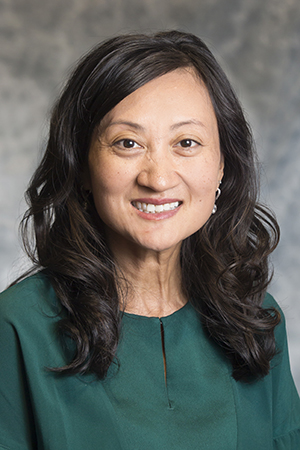
Letter from the Director
When the Duke University faculty first imagined this program in 1998, they took a bold step to advance the practice of health care leadership, which was an innovative concept at the time. They looked to the future and determined that the fast-paced and unpredictable patterns of health care delivery demanded a different type of leader, one who could innovate, build teams and partnerships, act decisively in the face of formidable industry challenges, and understand the complexities of communities, families, patients, and employees. They determined that in order to address these broad leadership needs, a program needed to be built that drew upon the expertise of Duke University's professional schools in medicine, nursing, business, law, and public policy. Such collaboration would provide the future leaders of America's health care industry with full access to a specialized professional degree program designed specifically to meet their needs.
We are pleased to bring to you this extraordinary academic endeavor. Those of us who were involved in developing it encourage you to consider applying. We are hopeful that what you will learn by attending will not only contribute to your own professional growth and development, but will contribute to the creation of new models of health care for a rapidly changing society with many unmet needs.
Sincerely,
Anh N. Tran, PhD, MPH
Program Director, MHS-Clinical Leadership Program
Associate Professor
Department of Family Medicine and Community Health
Duke University School of Medicine
Program Structure
This 42 credit-hour, three-year professional degree program awarded by the Duke University School of Medicine uses a model of succinct onsite sessions combined with distance-based technology-supported learning in order to enable students to participate in quality learning while still maintaining a work-life balance. On-campus dates are scheduled well in advance. The distance education portion of the Master of Health Sciences in Clinical Leadership program consists of learning activities that are provided via web-based tools —streaming media, video conference, interactive presentations, and other synchronous and asynchronous learning modules. Each is used in varying degrees for different courses.
Course reading is supported and supplemented by moderated discussion boards, reflective essays, case analyses, and peer teaching sessions. Levels of learning are evaluated with tests and quizzes, course projects, oral presentations, and writing assignments.
For students pursuing the master’s degree option, the program also includes a targeted leadership coaching component intended to enhance a specific skill set or emotional intelligence competency, as determined by the student and executive leadership coach.
Cohort Structure
Students move through the program as an integrated team. This cohort structure creates an exceptional peer learning experience offering project collaboration and team problem solving. Class sizes are deliberately small in order to encourage optimum peer-to-peer learning, idea networking and rich interaction. Learning and working within a cohort mirrors the workplace experience of problem solving and decision-making with individuals from different fields. Students often find that the cohort structure provides the opportunity to build strong bonds with classmates that continue throughout their professional lives.